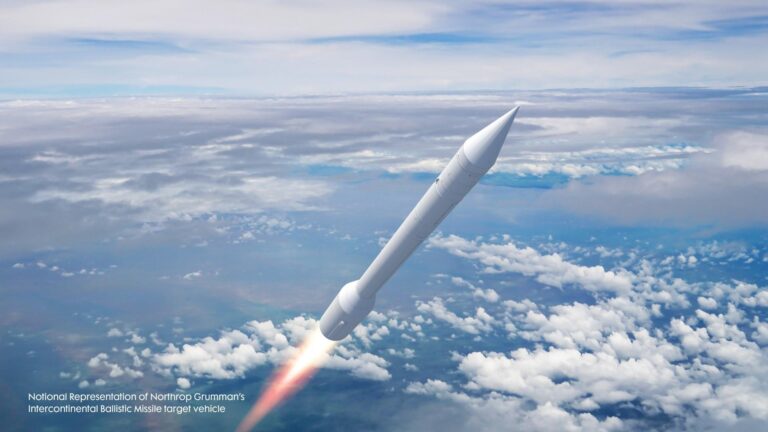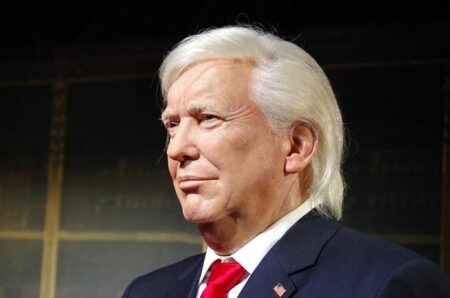In a development that exacerbates existing tensions in an already complex geopolitical surroundings, Ukrainian intelligence has indicated that Russia is set to conduct a test of an intercontinental ballistic missile (ICBM) this coming Sunday.This planned missile launch is perceived as a tactic of intimidation,highlighting the persistent instability in the region amidst the ongoing conflict between Russia and Ukraine. As both nations remain vigilant, military activities and aggressive rhetoric are on the rise. The global community is closely monitoring these events, raising significant concerns about security in Eastern Europe and broader implications for international peace.
Russia’s Military posturing: Global Security Repercussions of Upcoming ICBM Test
The recent declaration from Russian officials regarding their intention to launch an Intercontinental Ballistic Missile (ICBM) has drawn considerable attention worldwide, particularly from NATO members and countries in Eastern Europe. This action reflects russia’s desire to assert its military strength while simultaneously signaling its capabilities amid escalating tensions with Western nations. Analysts propose that this missile test serves several strategic objectives: *exhibiting military might*, *delivering a calculated message to rivals*, and *potentially gauging reactions from Western powers*. Such actions can create ripple effects across global security frameworks, potentially provoking countermeasures from NATO that could escalate into miscalculations or misunderstandings within an already precarious geopolitical climate.
Furthermore, the ramifications of this ICBM test extend beyond immediate regional concerns. Observers fear that such displays of force may prompt neighboring countries to enhance their militarization efforts, necessitating revisions in their defense strategies. To grasp the potential fallout from this missile launch more comprehensively,consider these factors:
- Heightened NATO Readiness: Allied forces may increase troop deployments and strengthen defenses along their eastern borders.
- Global Arms Development: Other nations might feel pressured to accelerate advancements in their own missile technologies due to fears of being outmatched.
- Deteriorating Diplomatic Relations: this situation could complicate ongoing discussions related to disarmament initiatives and arms control agreements.
The unfolding scenario suggests significant shifts in alliances and military postures are likely on the horizon, underscoring the fragile balance of power characterizing modern international relations.
Ukrainian Intelligence Evaluations: Analyzing Russia’s Motivations for Missile Testing
The Ukrainian intelligence community has expressed alarm following Russia’s announcement regarding its forthcoming intercontinental ballistic missile (ICBM) test; they interpret it as a deliberate act aimed at intimidation. Experts believe this maneuver serves multiple purposes—primarily reinforcing internal political stability within Russia while showcasing military capabilities both domestically and internationally. Ukrainian sources stress that such tests are designed not only as displays but also as messages affirming Russia’s readiness to assert its power amidst ongoing conflicts.
The motivations behind this impending missile launch can be summarized as follows:
- Political Signaling: Aimed at strengthening domestic support for Kremlin leadership.
- Tactical Provocation: A strategy intended to heighten regional tensions while deterring Western intervention efforts.
- Demosntration of Military Capability: Showcasing advancements in technology alongside overall military strength.
A recent analysis by Ukrainian officials indicates that through such provocations, Russia aims not only at projecting strength but also at diverting attention away from its challenges within Ukraine itself—a balancing act crucial for maintaining Kremlin authority during contemporary conflicts.
Strategic Preparedness: Recommendations for NATO and Western Allies amid Rising Tensions
As hostilities escalate alongside Russian provocations, it becomes imperative for NATO along with its Western allies to prioritize readiness coupled with strategic responses. Conducting thorough assessments of current military postures alongside reviewing defense commitments will be vital steps toward ensuring collective security among member states. Key recommendations aimed at enhancing preparedness include:
- Amping Up Military Readiness: Increase troop deployments along with conducting extensive exercises throughout Eastern Europe as deterrents against Russian aggression.
- Cultivating Cybersecurity Measures: Implement advanced cyber defenses designed specifically to safeguard critical infrastructure against potential threats or attacks.
- Pursuing Enhanced Intelligence Collaboration:</ strong Foster improved cooperation among intelligence agencies aimed at bolstering situational awareness alongside early warning systems.
Additionally, diplomatic initiatives must complement these military preparations so as not only reduce escalation risks but also facilitate dialogue without compromising firmness towards Moscow’s actions. Further strategies may encompass:
- Coordinated Economic Sanctions: Develop frameworks enabling rapid economic penalties should aggressive maneuvers continue.
- Sustaining Support For Ukraine: continue providing necessary aid enabling Ukraine’s defense against possible incursions.
- Establishment of Unified Command Structures: Promote joint command frameworks among NATO allies streamlining decision-making processes during crises.
Concluding Insights: Navigating Escalating Tensions
As tensions intensify across Eastern Europe , Ukraine’s intelligence apparatus raises alarms over impending Russian missile launches , framing them explicitly within contexts characterized by intentional acts meant primarily towards intimidation . The scheduled ICBM testing starkly illustrates volatility present throughout regions affected by conflict ,posing serious threats not just locally but challenging broader international diplomatic endeavors geared towards resolution . As developments unfold , global observers remain acutely aware concerning delicate balances inherent within power dynamics necessitating dialogues capable preventing further deterioration .




